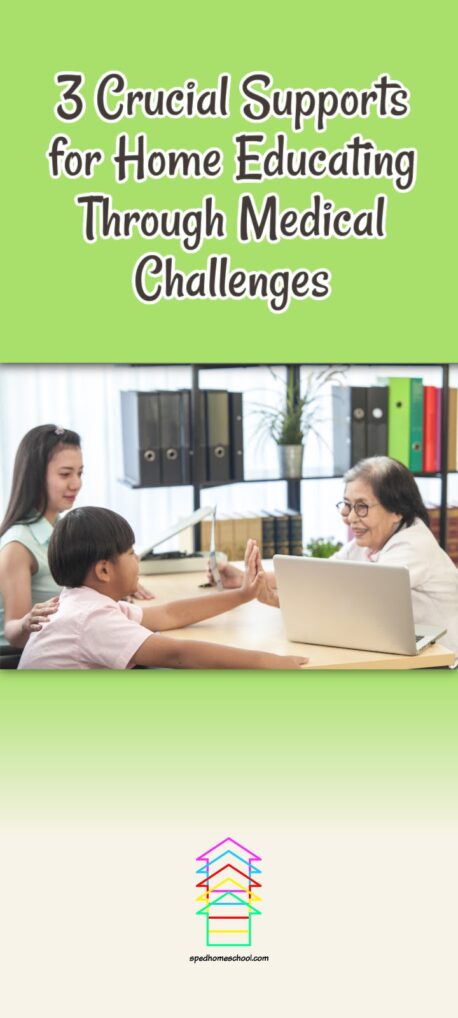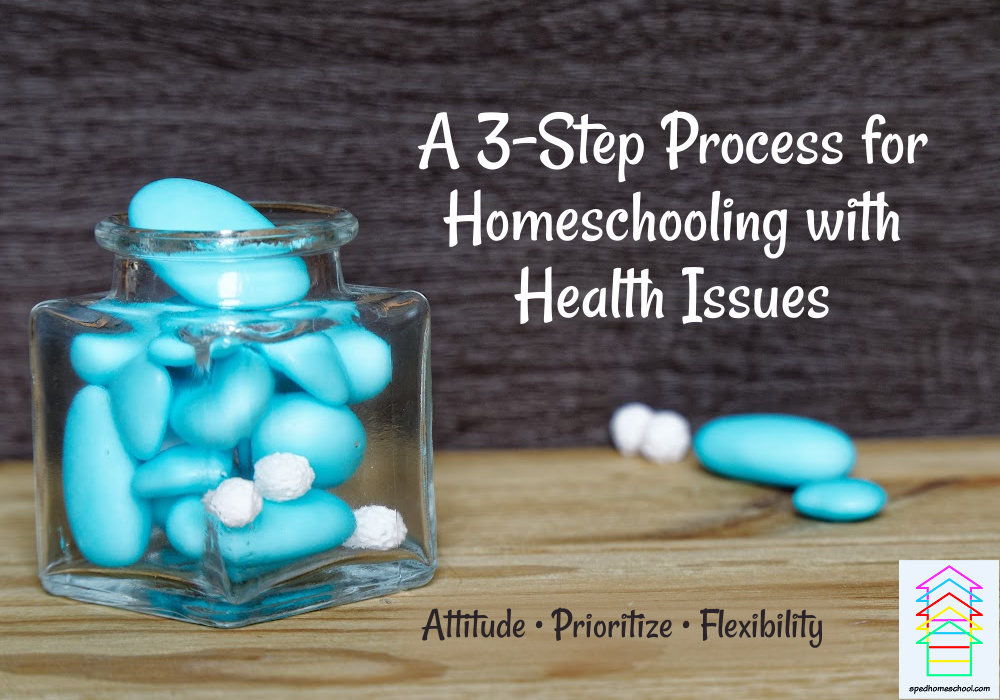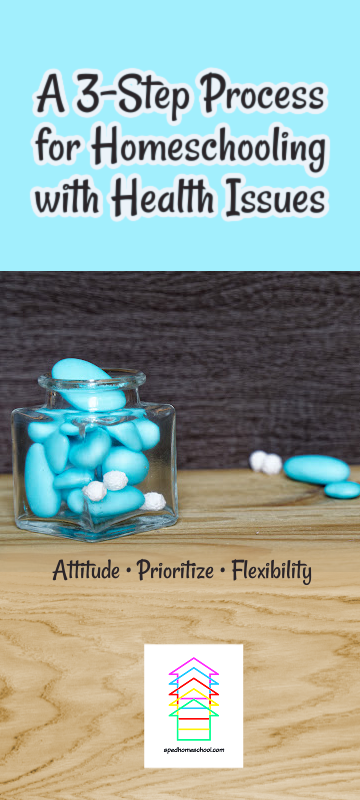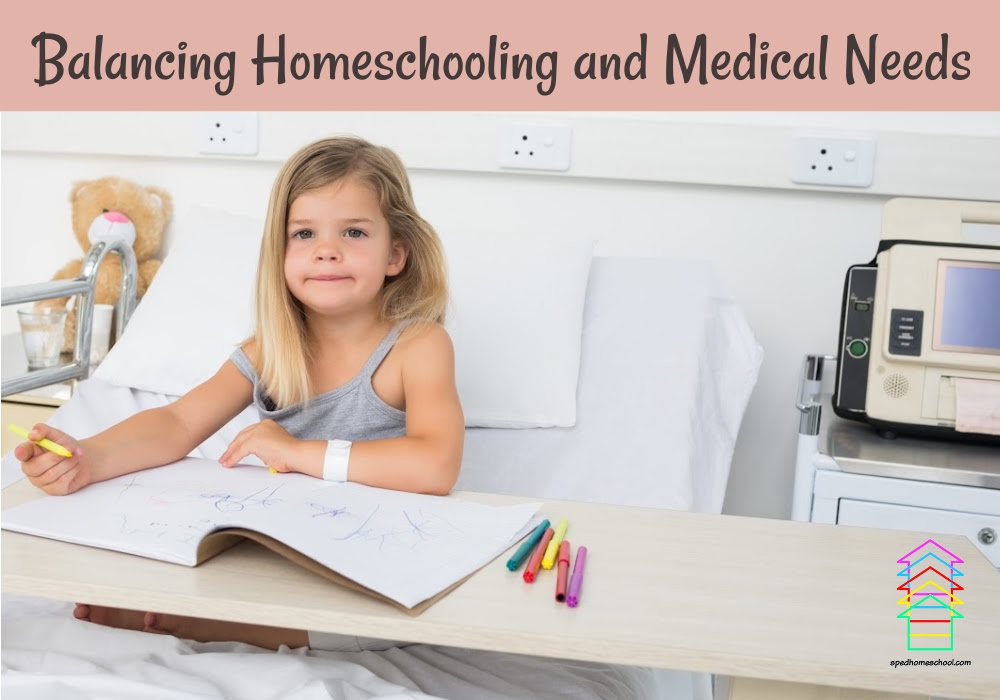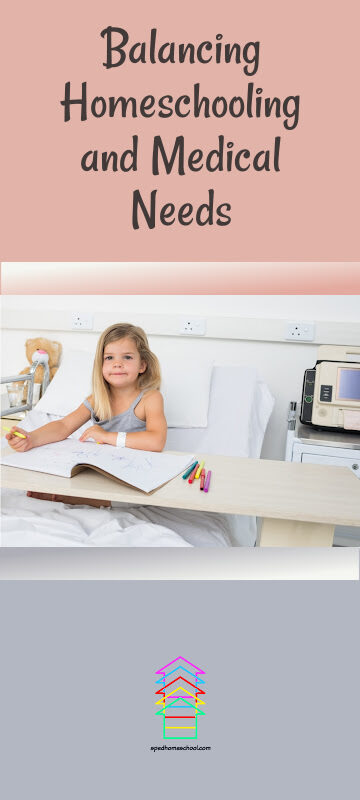
By Julie Grosz, M.Ed., with Heart of Dakota Curriculum
Do you have a medical challenge or two in your life right now? If you do, please know you are definitely not alone! Now more than ever, it seems like medical challenges are mounting. In the past 20 years of homeschooling my own three sons, we have had multiple medical challenges. Some have lingered, and praise God – some have not. Faith, family, and homeschooling have held us together; they have given us much needed normality among the abnormality of medical challenges.
We’ve had medical challenges of high-risk pregnancies, months of complete bed rest, fibroids, cysts, dozens of hospital stays, premature babies, NICU hospitalizations, physical therapies, occupational therapies , speech therapies, helmet therapies, cardiologist appointments, epi-pens, severe reflux, thyroid disease, and hernia surgery, the list goes on. I’ve helped care for my dad through pancreatic cancer, my mom through high blood pressure, my sister through vertigo, my husband through COVID, and of course, the list could go on.
Your Own Medical Challenges
Many of you, just like me, have your own lengthy list of medical challenges. Some have lingered, but praise God, some have not. You have more than likely found yourself to be the patient needing care. You have likely found yourself to be the caregiver. Both the role of patient and caregiver pose medical related challenges. However, no matter what your circumstances may be, faith, family, and homeschooling can truly hold you together! They can be your calm in the storm. On the worst of days, they can be your anchor, holding you steady until the winds and the waves have passed.
Leaning on Faith in the Midst of Medical Challenges
You can lean on your faith in the midst of medical challenges. I know because I’ve witnessed it firsthand from my dad. My dad was strong, happy, healthy, and a hard- working family man with a heart for the Lord. The other day I needed to list my dad’s medical challenges for my doctor, as we had to do some genetic testing for my son’s heart condition. I was shocked at the list! My dad had his gallbladder removed, had an abdominal aneurysm, needed 19 pins in a rotator cuff surgery, had seven blood clots pass through his heart, had a heart attack, a brain bleed, and pancreatic cancer. I had just told the doctor my dad was an incredibly healthy strong man. Where in the world did I get that idea?!? Well, I can tell you where, it was from my dad.
My dad’s faith made him strong. So strong, even through all his medical challenges, my mom, my sisters, and I still would all say he was a healthy man. Making that list showed me he doesn’t really look all that healthy on paper. Still, we remember him as a strong, healthy man who loved to laugh and who loved the Lord. People came to visit my dad during his pancreatic cancer, and they often left encouraged by my dad! He had his bad days, but overall, he was still quite happy. Faith, he leaned on his faith during medical challenges. They seemed to disappear right before our very eyes. We forgot them because he didn’t dwell on them. Lean on your faith in the midst of medical challenges. Talk to God about it. He cares, and He will carry you through the storm.
Leaning on Family in the Midst of Medical Challenges
You can lean on your family in the midst of medical challenges. I know, because I have been leaned on, and done some leaning of my own. My husband got up before work to put a lunch he made for me in the fridge every day during my many months of bedrest. When doctors couldn’t figure out what was wrong with me, my sister hauled me from doctor to doctor until they figured it out. My mom came to care for my baby while I recovered from medical challenges that had brought sheer exhaustion. My dad came to help me care for my premature baby. Even my sons brought me food and blankets and hugs as I lay in bed recovering from surgery. I returned the favor by caring for my husband, my sons, my sister, my dad, and my Mom through some of their medical challenges.
Lean on your family in the midst of medical challenges. Tell them what they can do to help. Be there for them in their medical challenges. Send a card, give them a call, make a meal, give a hug, get groceries, or simply ask what you can do to help and do it.. When my dad was at home in hospice care, he wanted me to take all the encyclopedia sets home in my car and disperse them among family. There were four complete sets. They were heavy, and they were in the basement. I carried them all to my car by myself, and they barely fit. It didn’t matter. He wanted it done, and he couldn’t do it. There is nothing wrong with helping with odd requests nor making odd requests. Family doesn’t judge; they help.
Leaning on Homeschooling in the Midst of Medical Challenges
You can lean on your homeschooling in the midst of medical challenges. Let homeschooling be your normal in the midst of the storm. Do what you can and do it as regularly as you can. If you are bedridden, have the children bring their books to you. If your children are bedridden, go to them. Homeschooling can work in a bed or on a couch. I’ve done both and actually still quite enjoyed it! Make your homeschool things mobile. Backpacks, canvas cubes, totes, wheeled suitcases, get creative! Mobile homeschooling means it can be done wherever you are.
If medical challenges require lengthy therapies for one child and your other children need to come, use that time to homeschool your other children. When my youngest son had helmet, physical, and occupational therapies in another city, my other two sons came to the appointments. My husband traveled for work and could not care for them. I brought my other two sons’ homeschooling things in backpacks. I also asked the nurse if they had an empty room or place I could quietly homeschool the boys. They did! In fact, they gave me my own room. They even let me use the physical therapy room for indoor recess. It was full of balls, ramps, mats, and hoops. The boys loved it!
Maybe you’re in the middle of a major medical challenge, and maybe you don’t see it going away any time soon or maybe ever. Do what you can. If you have two good hours a day to homeschool, then homeschool those two hours. Move slowly, steadily forward. Maintain routine and balance by moving through subjects in the same order. Write down the order you’d like: Bible, history, geography, science, math, reading, read-alouds, spelling, music, grammar, art, etc. Maybe on Monday you have two good hours and you start with the Bible and make it through science. On Tuesday, maybe you have three good hours, so you start with math and make it through art. Maintain a routine, and homeschooling can still be your normal.
In Closing
If you find yourself in the midst of medical challenges, take heart! You are not alone. Lean on your faith, your family, and your homeschooling. Give yourself, your spouse, your children, and your extended family a LOT of grace. Looking back, I see God’s hand in all we have been through. I rest in the promise that His plan is good; it is better than mine. Medical challenges come and go; even medical challenges that hang around have periods of respite and times of hardship. Hold strong in the storm; celebrate in the calm. Look back and marvel at all God has brought you through. Know in the depths of your soul, God is good. He loves you. He is with you in the storm, and the storm will not last forever.
In Christ,
Julie
Julie Grosz, M.Ed., is a placement specialist and professional blogger for Heart of Dakota. Julie is a former public school teacher who lives in South Dakota, where she and her husband have homeschooled their three sons. Julie has enjoyed helping Heart of Dakota families on the phone and at conventions with placement, questions, and orders for the past 20 years. Her passion is writing, however, homeschooling her own sons from preschool to twelfth grade has been her most fulfilling adventure of all!

